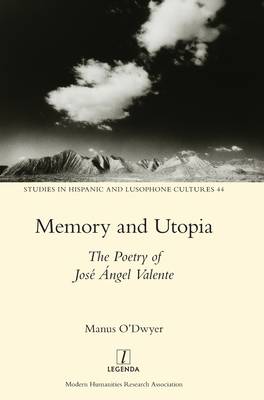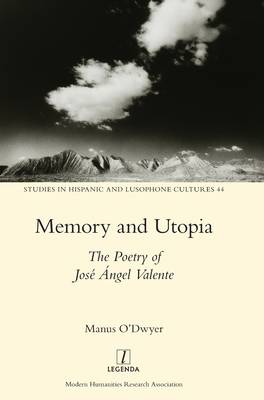
- Retrait gratuit dans votre magasin Club
- 7.000.000 titres dans notre catalogue
- Payer en toute sécurité
- Toujours un magasin près de chez vous
- Retrait gratuit dans votre magasin Club
- 7.000.0000 titres dans notre catalogue
- Payer en toute sécurité
- Toujours un magasin près de chez vous
Description
Lauded by many as one of twentieth-century Spain's greatest poets, José Ángel Valente (1929-2000) remains one of the defining, if at times divisive, figures in Spanish poetry. O'Dwyer's new study draws attention to the cultural and historical context within which Valente developed his sophisticated poetics, and seeks to counter a widespread view of him as a modern mystic, unconcerned with the political. Valente read deeply from a twentieth century tradition of Jewish thought and poetry -- absorbing the work of Walter Benjamin, Ernst Bloch, Gershom Scholem, Emmanuel Levinas, Edmond Jabes, and Paul Celan: writers who shared Valente's ethical responsibility to the victims of twentieth-century totalitarian violence, and his commitment to utopian ideals. This study will serve to introduce English speakers to Valente's work but is also a contribution to contemporary scholarship and debate in literary theory, memory studies, and Spanish poetry.
Manus O'Dwyer completed a doctoral dissertation on the work José Ángel Valente at the University of Santiago de Compostela in 2016. He has taught at Trinity College Dublin and the University of Liverpool and is currently a Teaching Fellow at Durham University.
Spécifications
Parties prenantes
- Auteur(s) :
- Editeur:
Contenu
- Nombre de pages :
- 142
- Langue:
- Anglais
- Collection :
- Tome:
- n° 44
Caractéristiques
- EAN:
- 9781781883655
- Date de parution :
- 28-09-20
- Format:
- Livre relié
- Format numérique:
- Genaaid
- Dimensions :
- 170 mm x 244 mm
- Poids :
- 430 g

Les avis
Nous publions uniquement les avis qui respectent les conditions requises. Consultez nos conditions pour les avis.






